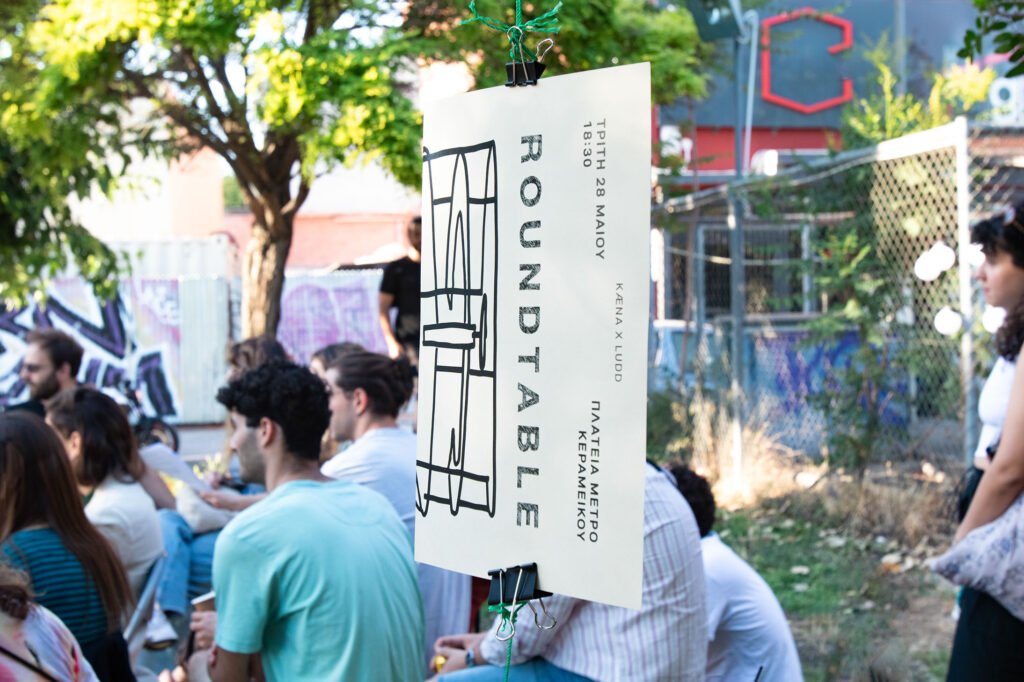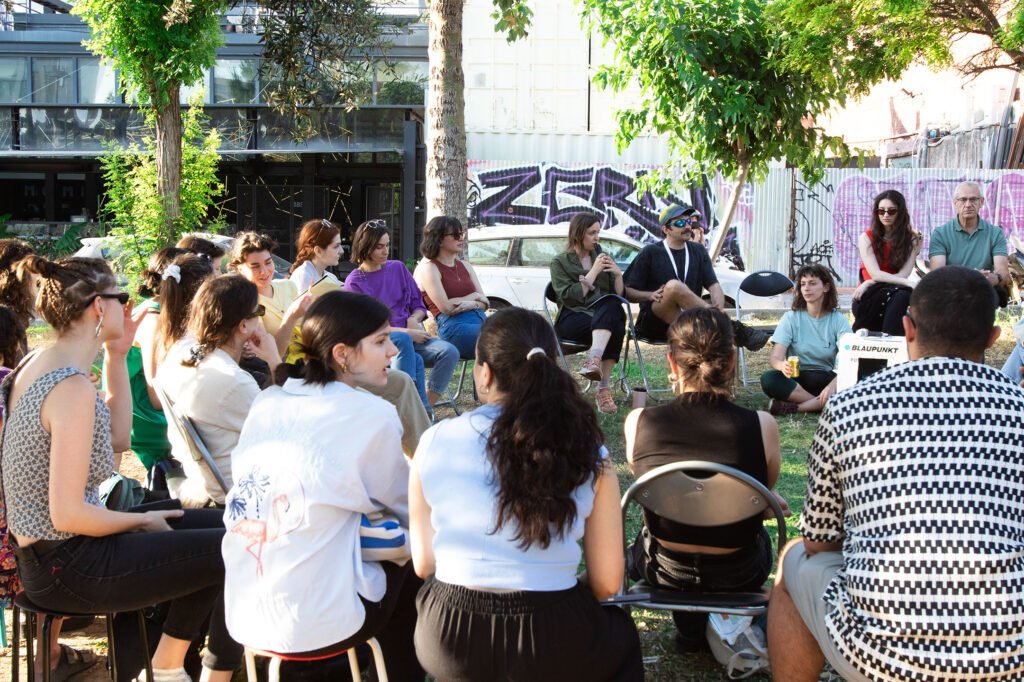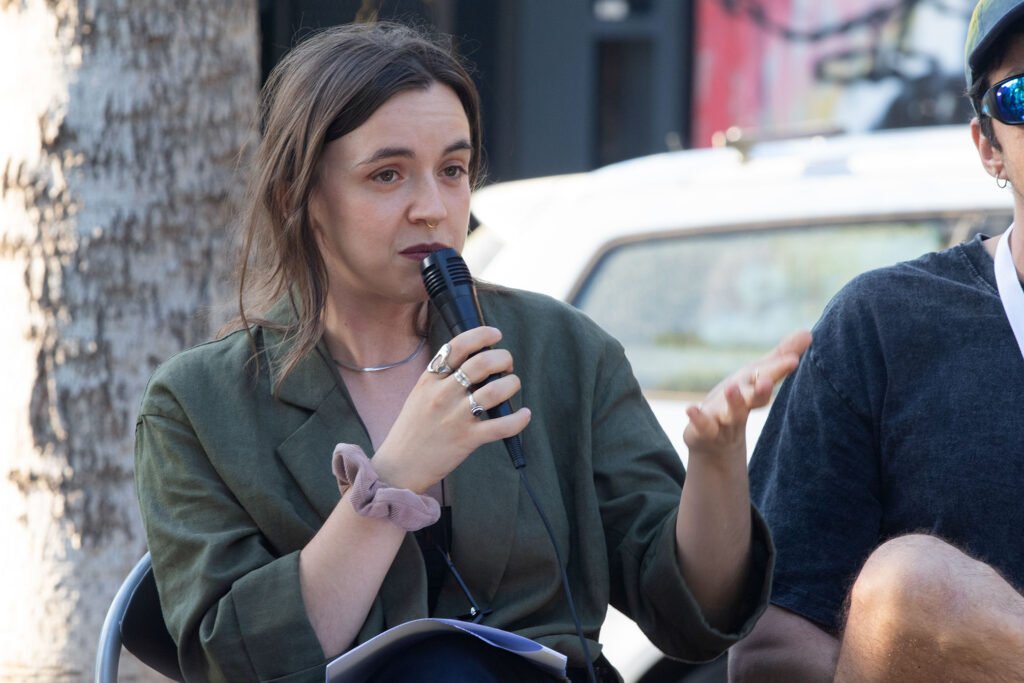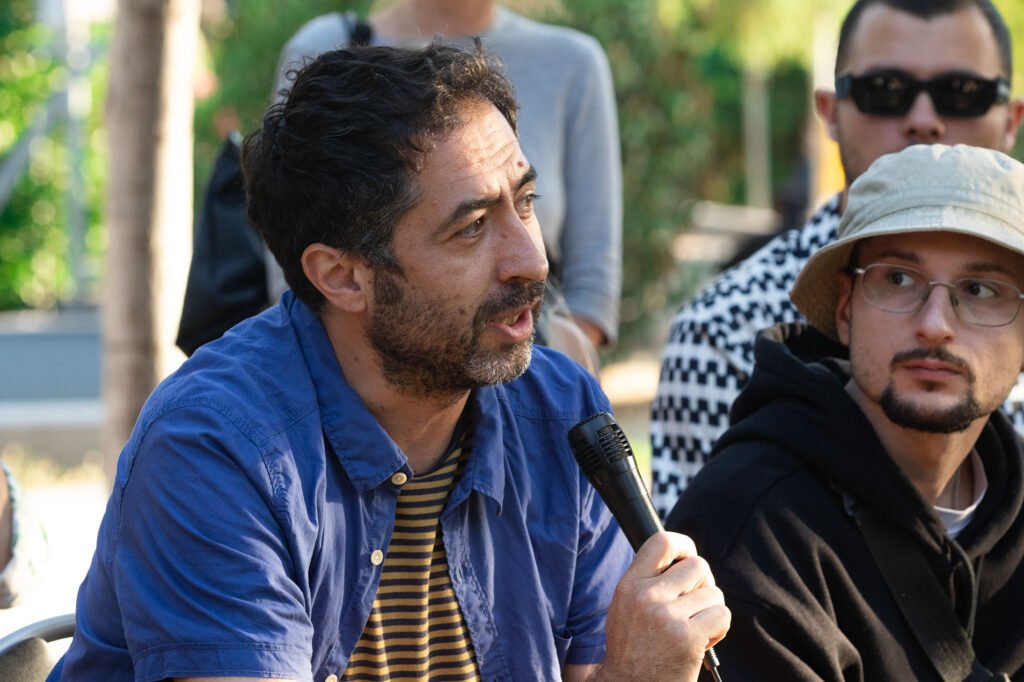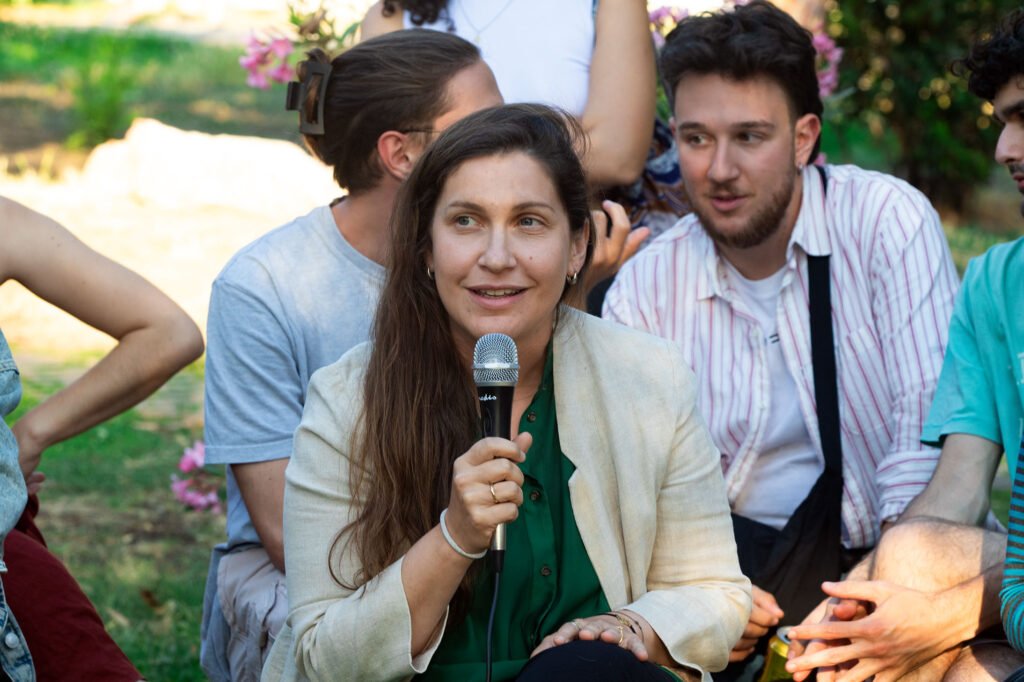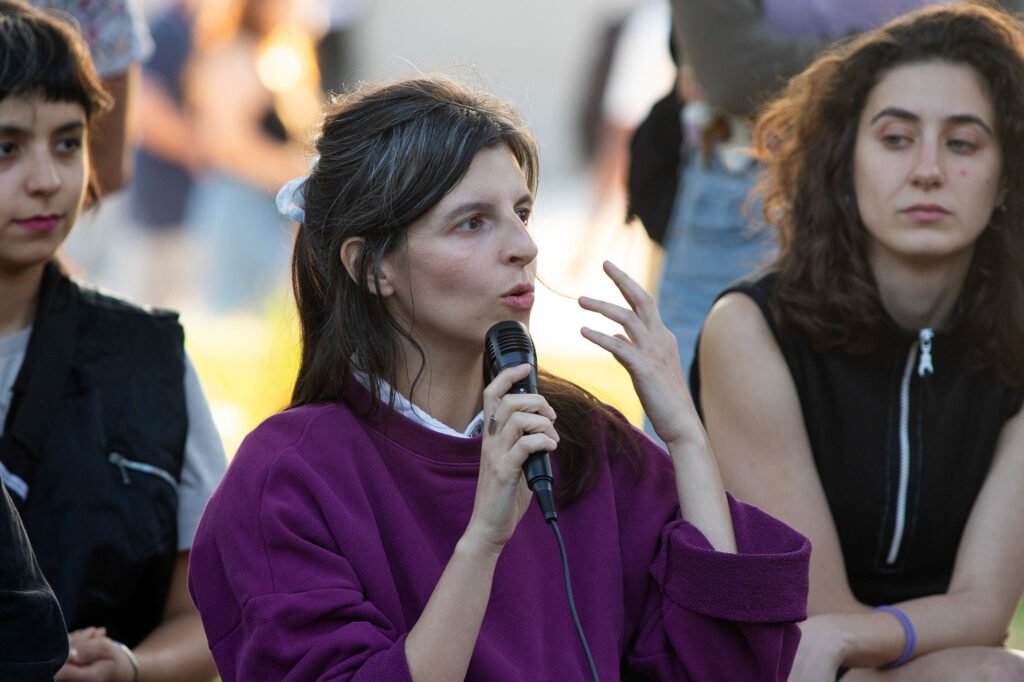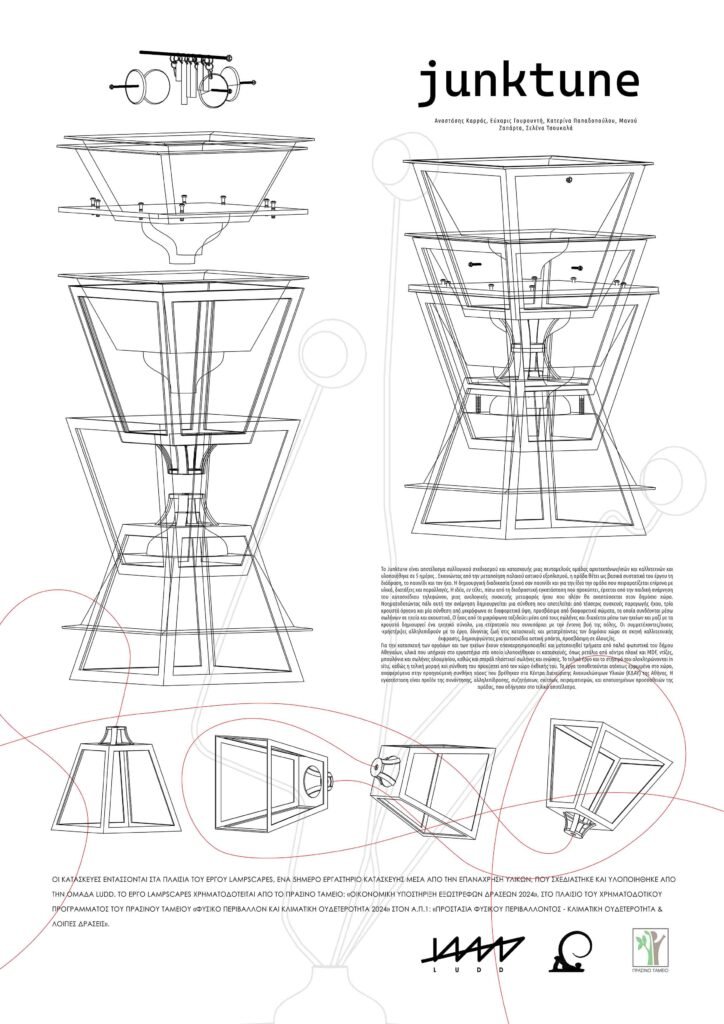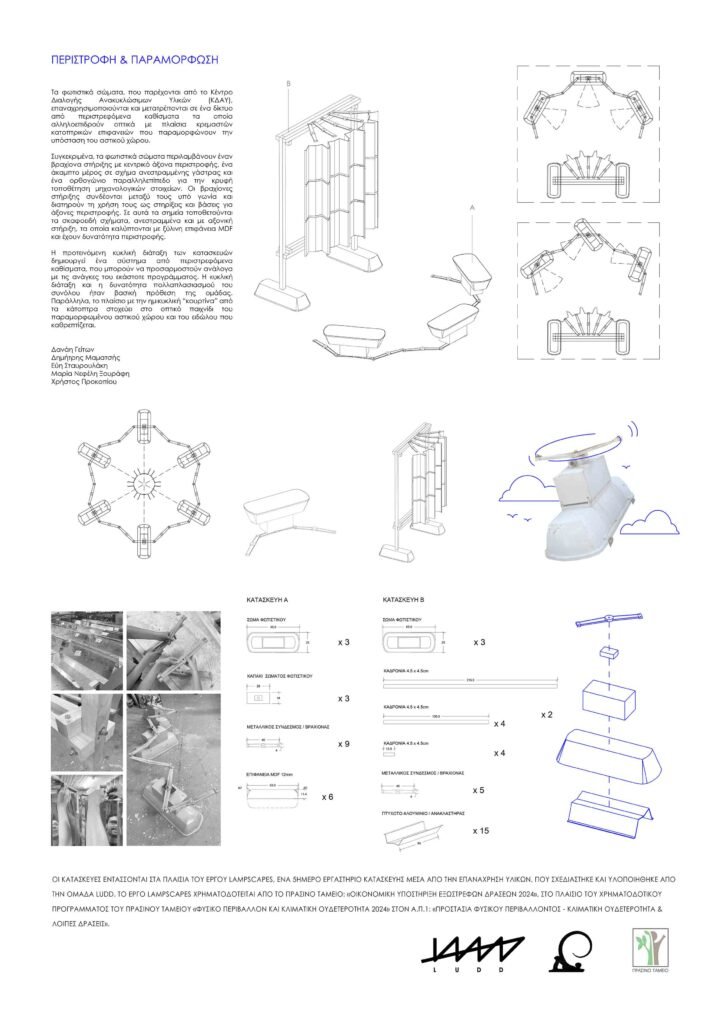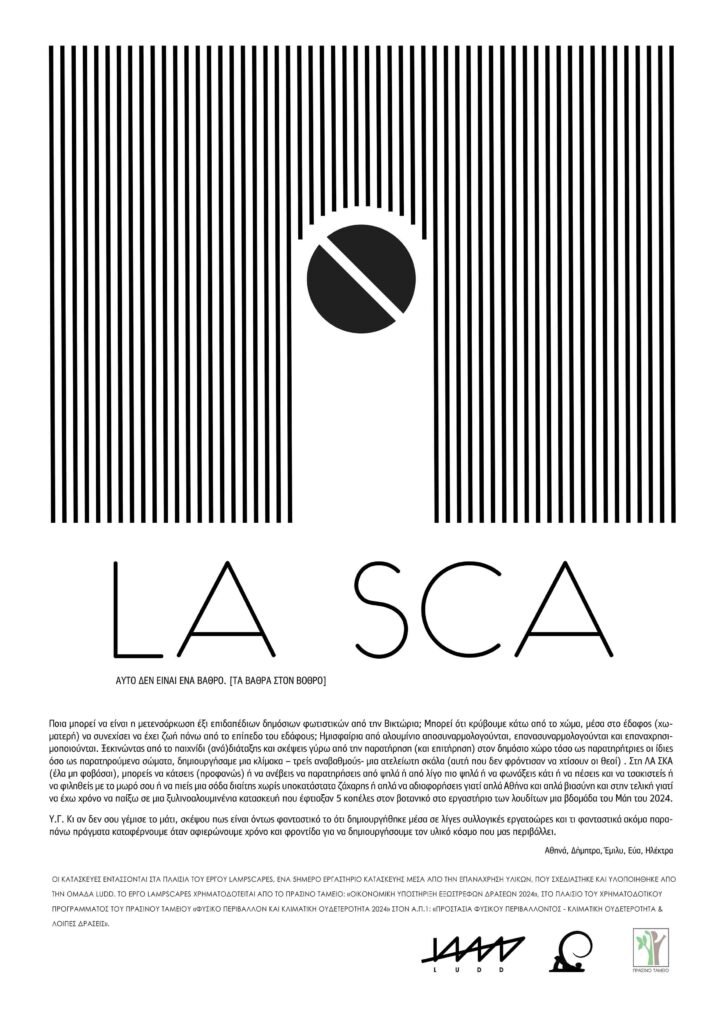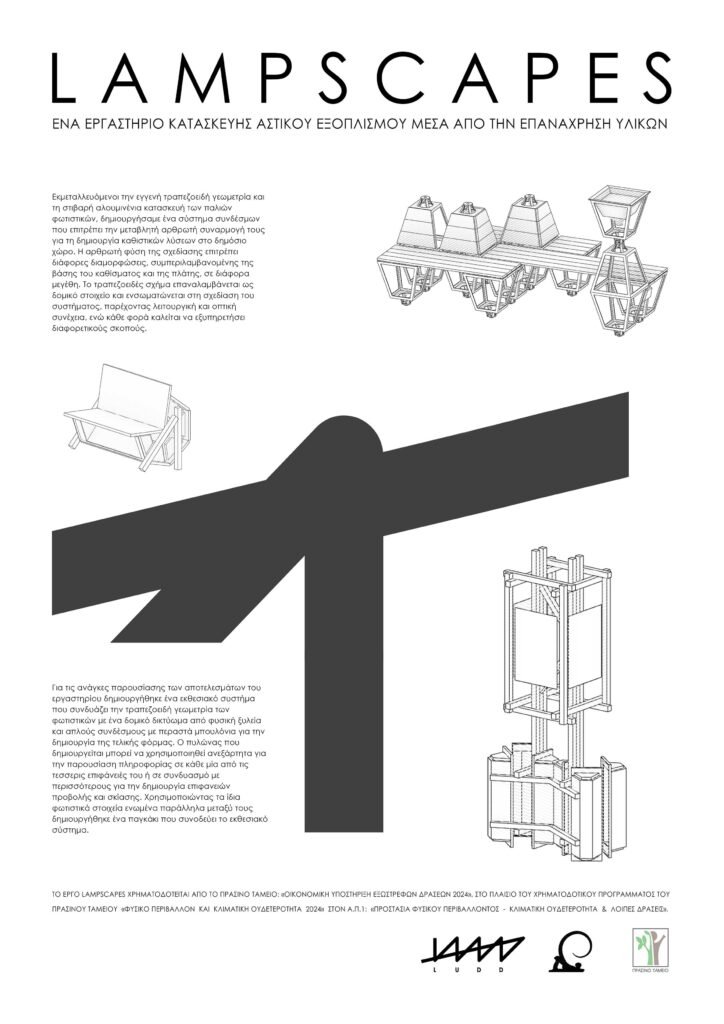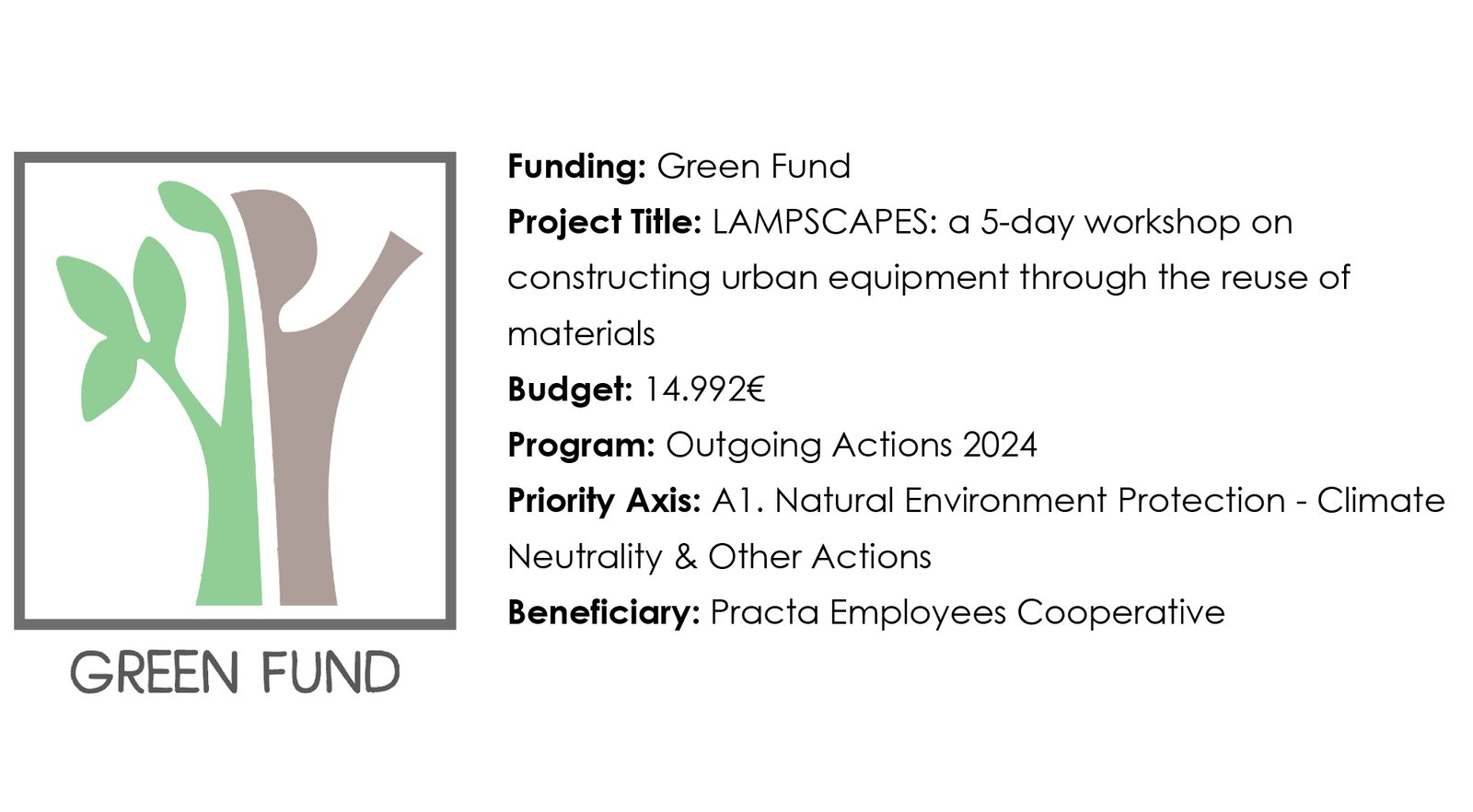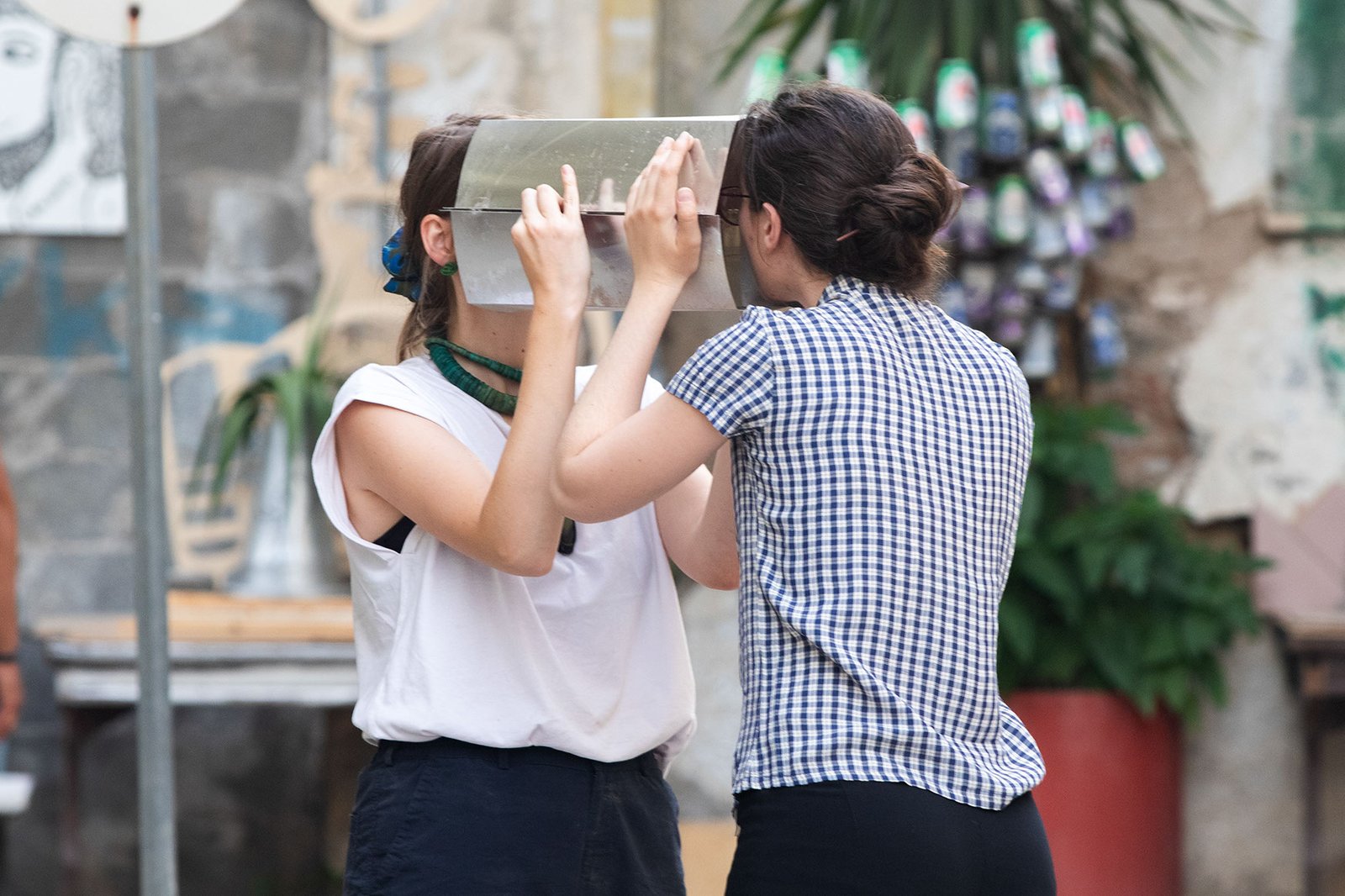The LAMPSCAPES project is an initiative that emphasizes the reuse and creative transformation of materials to enhance urban public space. We conducted a 5-day design and construction workshop where participants collaborated to repurpose old lamps from the Municipality of Athens. By combining them with recyclable and other affordable materials sourced from the local market, we attempted to collectively produce new objects of urban equipment, such as seating and exhibition systems, planters as well as urban sculptures. The workshop began with the design and construction of the compositions in the LUDD studio and ended in their open exhibition in the Technopolis of the Municipality of Athens, within the Street Transformation Lab program organized by the CIVINET network. The process culminated in a public roundtable discussion, which focused on the issue of urban sustainability. The entire action was free to the public.
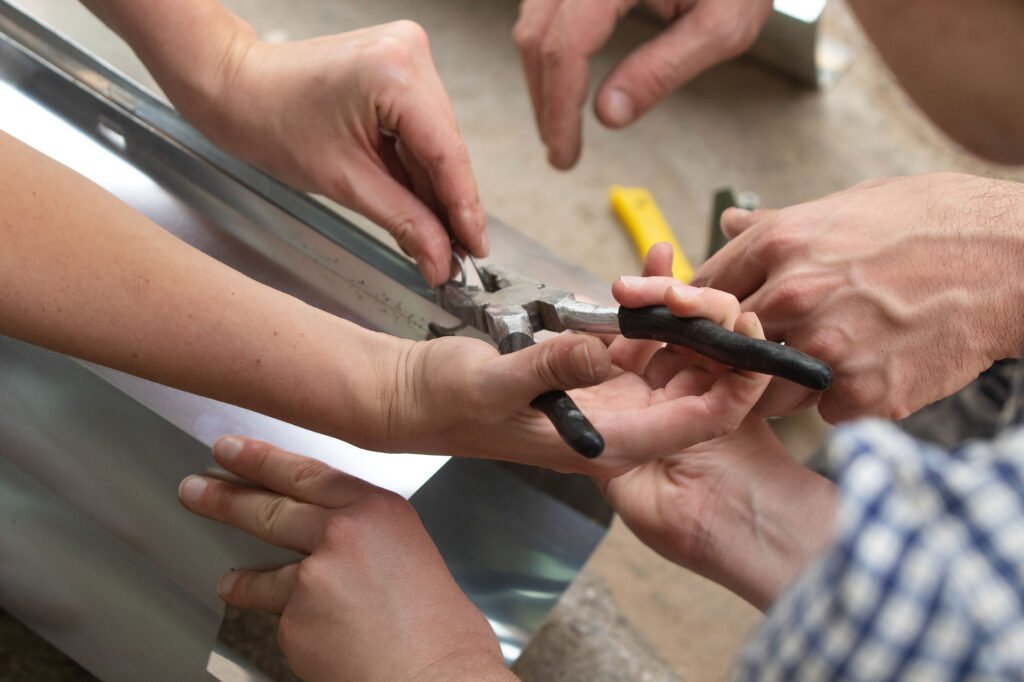

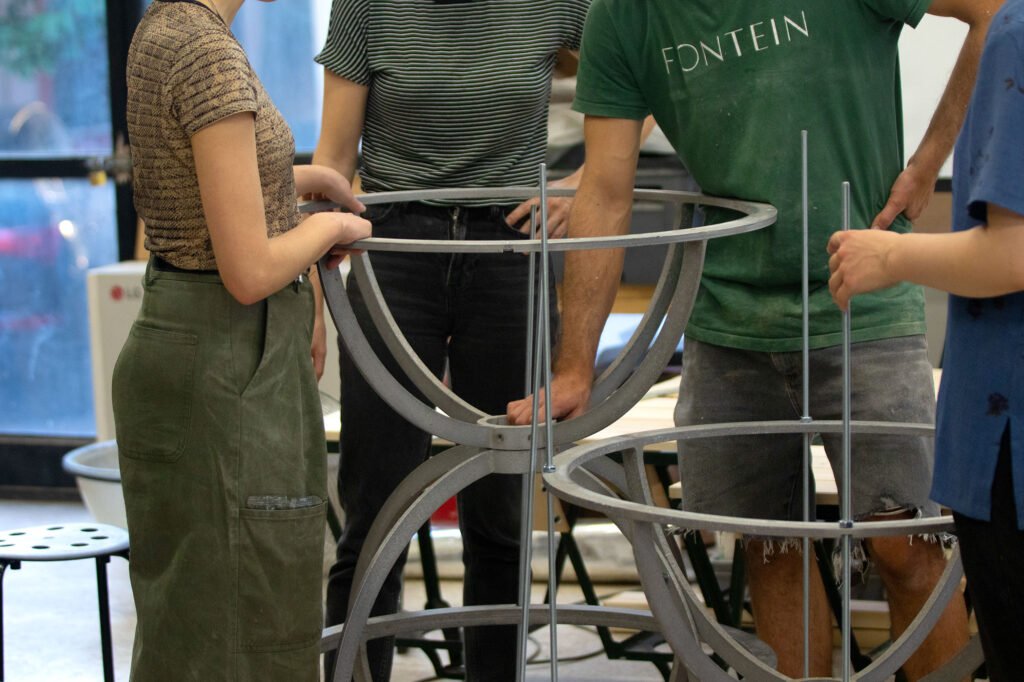
The idea that motivated this project arose from observing that the city's old lamps were arriving at the Recyclable Materials Management Centers of Athens in a constant flow and large quantities, as they are massively replaced by local government services. We were particularly interested in these elements of urban equipment that are removed from public spaces, as they arise from the current process of urban transformation and therefore belong de facto to the field of practice and debate on urban sustainability in Greece. Thus, in collaboration with the Athens Municipality's Recycling Center, we gained access to the facilities for storing and sorting recyclable materials where we searched for, collected and supplied some old lamps. Τhe old lamps, due to their volume and abundance, allowed us to study them and reuse them as raw material in our constructions.
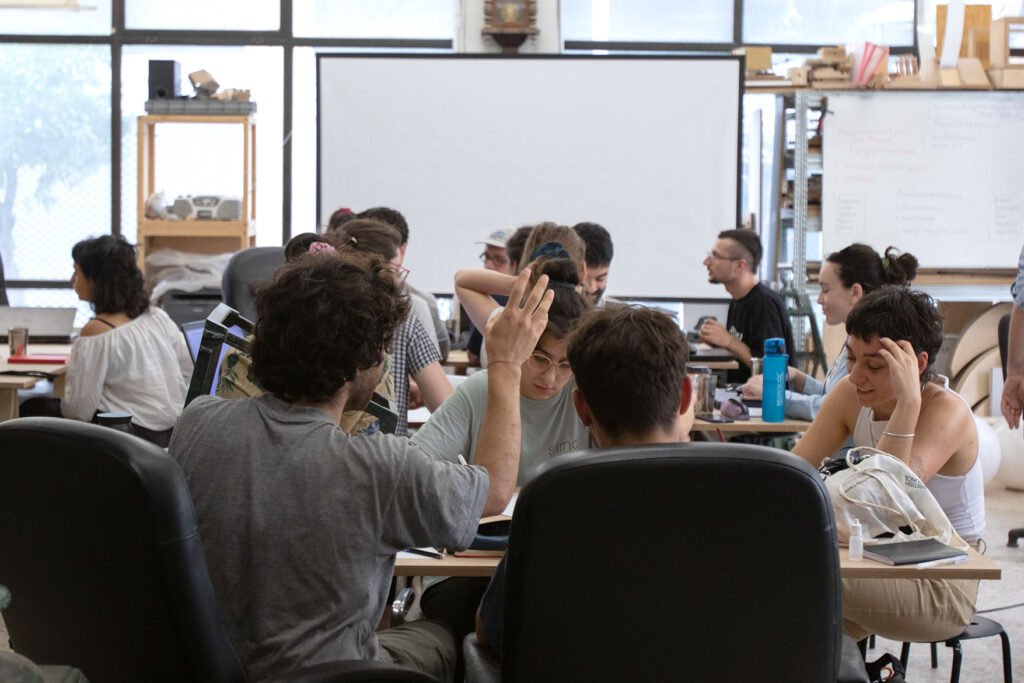




In the framework of the construction workshop, implemented in collaboration with the ROKANI team, we built some compositions designed by the LUDD team itself but also designed and built new compositions with the participants. The workshop was addressed to 20 students and young professionals in the field of spatial planning (architects, industrial designers, artists, craftsmen, etc.). The participants, coming into direct contact with the construction process of a small-scale architectural project in all its stages, acquired a wide range of technical knowledge and experience. Working as a team, they were introduced to the value of co-design, while at the same time, fostering a sense of community ownership and involvement in the urban transformation process. Finally, by processing recyclable materials, the participants became familiar with the basic principles of upcycling and realized both its possibilities and limitations.
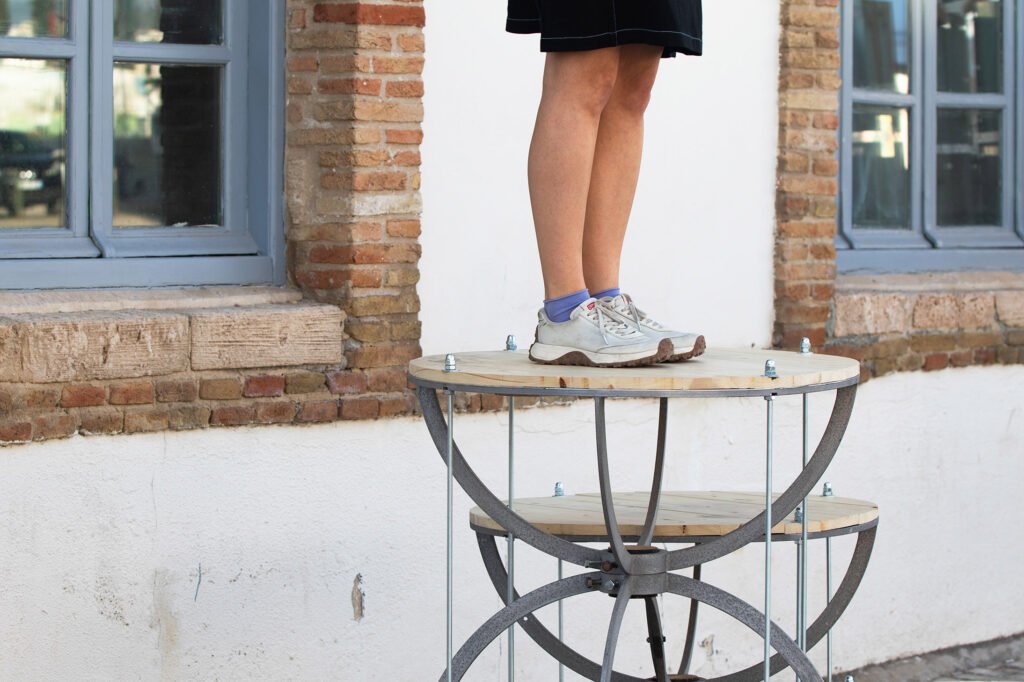
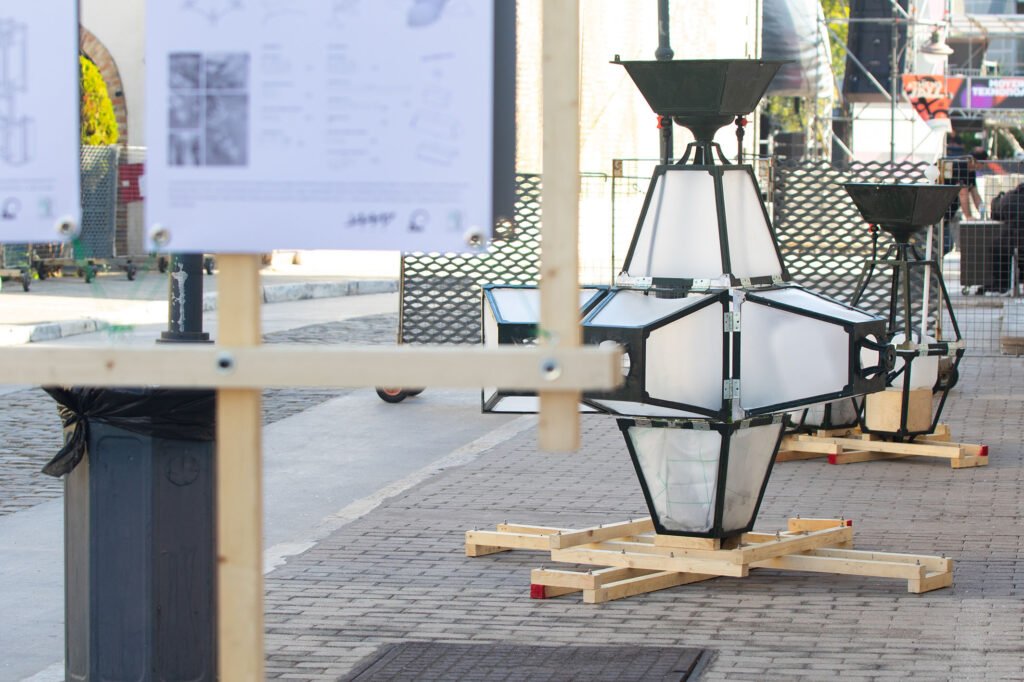

Through this participatory process various experimental urban objects emerged: a paradoxical staircase that leads to nowhere and functions sometimes as a sitting system and sometimes as an observatory; a variable urban greenhouse that opens like a flower and turns into a seat; an interactive installation that reflects light and distorts the surrounding space in dialogue with the human presence while at the same time evoking kinetic games; a composition of improvised loudspeakers that convey a soundscape of three percussion musical instruments and four voices... Objects that are rare these days in the open space of the city. During the workshop we did not only dedicate ourselves to the materiality and usability of the constructions but we tried to reflect on the reinvention of an urbanity outside the sterile character of the modern public space and the established limits of typical urban equipment.
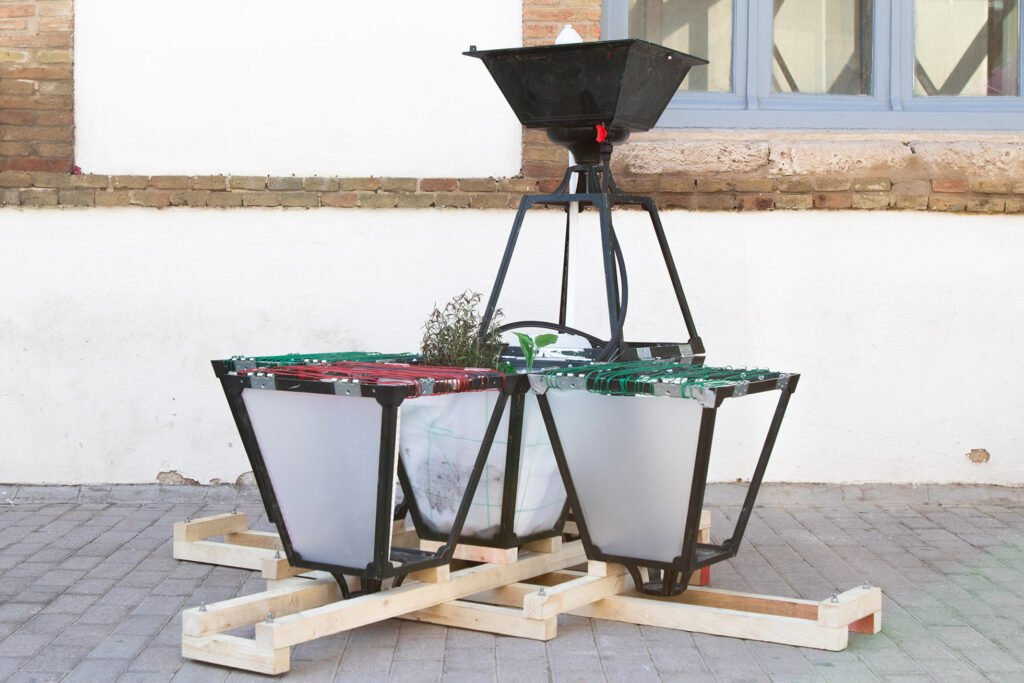
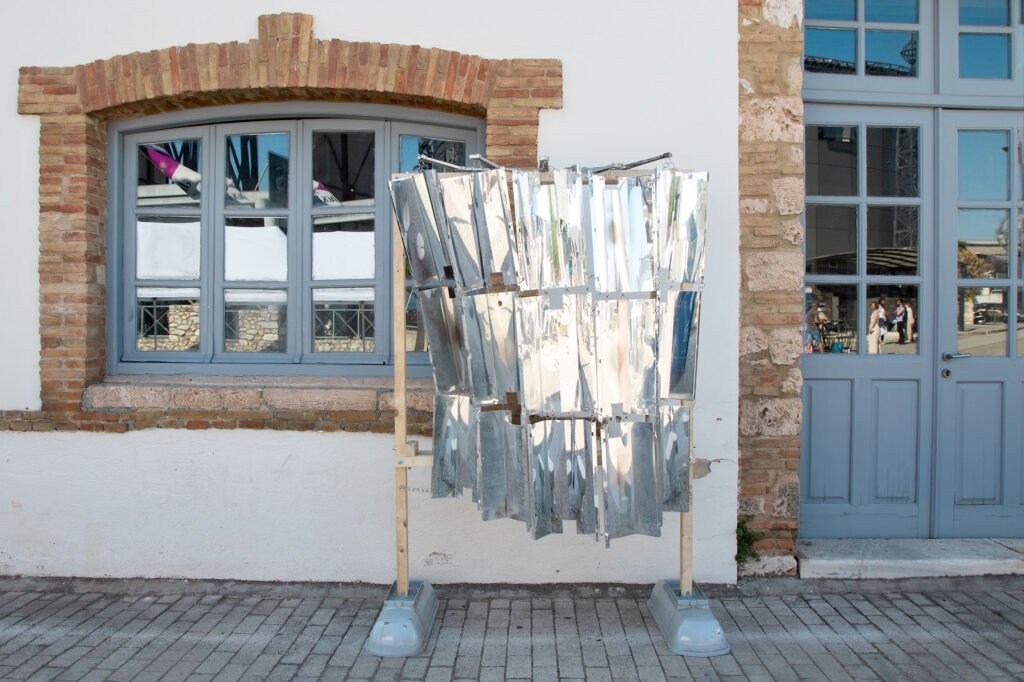
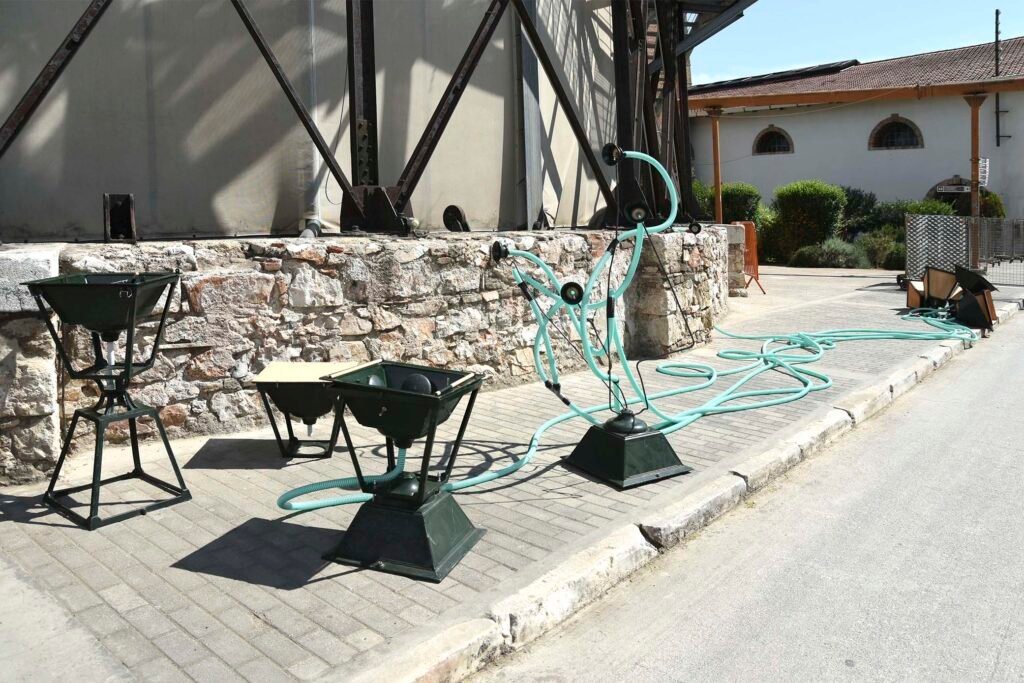
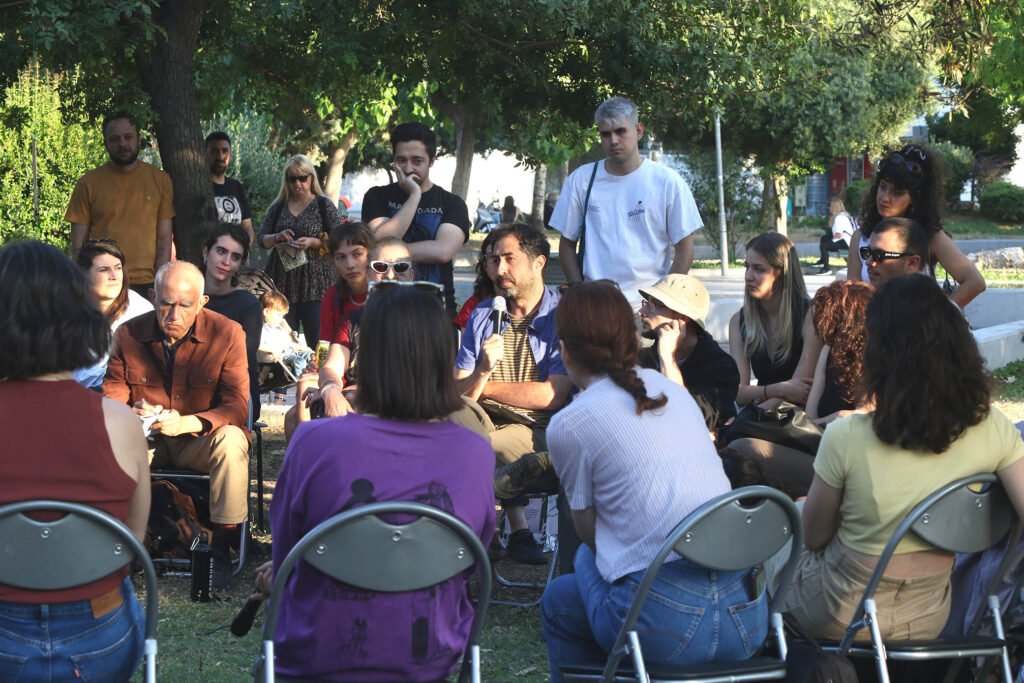
The whole process culminated in an open circular discussion in Kerameikos Square, implemented in collaboration with the KÆNA group, and raised new questions around the sustainability of public space.
- By what processes is the public space formed? How do we get involved in them?
- What are the criteria that could be applied to the design of urban equipment to improve the functionality and accessibility of public spaces?
- If you had the possibility to make an institutional change, small or large, for the public space of Athens or other Greek cities, what would it be?
The discussion was held in a roundtable format, with conditions of equal participation and with the contribution of invited speakers, who shared their knowledge and experiences from their work in different fields of public space. Members of the LUDD and URBANA team, Evita Fanou and Kostis Masouras contributed to the discussion.
